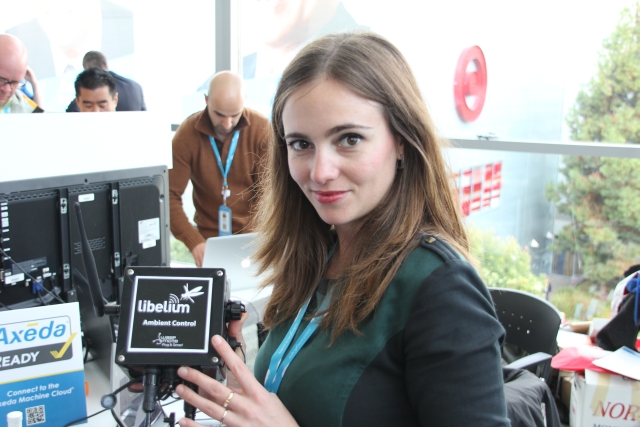We need to think beyond technology to get value the real value from the internet of things says Alicia Asin, the CEO and co-founder of Spanish sensor company Libelium.
Libelium and its CEO Alicia Asin has been covered previously on this blog and we had the opportunity to record an interview with Alicia at the 2013 Dreamforce conference.
Alicia told us about her vision for how she sees cities and governments evolving in an era of real time accessible information, in many ways it’s similar to where the Deputy Lord Mayor of Barcelona sees his city being at the end of this decade.
“I would say the biggest legacy the internet of things can bring is transparency,” says Alicia. “In the smart cities movement the IoT gives an opportunity for have a dashboard for cities.”
“You can see the investment made for reducing traffic investment downtown, the carbon footprint reduced and the return on investment,” says Alicia. “You can have very objective facts to supply to the citizens and they can make better decisions.”
For this vision to become true, it means government data has to open to the community which is something that challenges many administrations, however Alicia also told the story of how her company supplied Geiger counters to volunteers monitoring the radiation fallout around the damaged Fukushima nuclear reactor in Japan.
“We made a project in Fukushima when the nuclear accident happened where we sent some Geiger counters to the hacker space,” says Alicia. “Suddenly all the people with the Geiger counters started to publish the data onto the internet.”
“They were keeping a totally independent radiation map made by the activist citizens.”
Alicia raises an important point of how citizens can be using technology independently of governments. This was most notable in the Occupy movements across the United States that sprung up in late 2011 where hackers set up independent communications networks and recorded events outside the control of mainstream media and government agencies.
While citizens can use these tools to get around official restrictions, governments play an important role in developing new industries around these technologies, Alicia sees the smart city investments made by Spanish cities as creating the start of a Spanish Silicon Valley.
“Despite the economy, we are seeing a number of projects in Spain around smart cities,” Alicia observes. “In fact, I’m saying Spain is becoming the Silicon Valley for smart cities.”
“In terms of attracting big companies to look at what’s going on in Spain and to build a bigger brand around the Internet of Things, I think that really helps.”
With government and citizens working together, Alicia sees the Internet of Things delivering great changes to society as it enables citizens and makes governments more accountable.
“It’s the real thing, it’s beyond technology.”

Leave a Reply